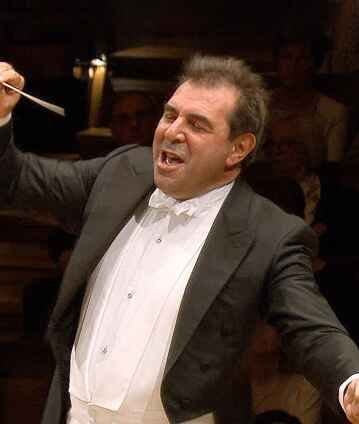Daniele Gatti conducts masterworks of French modernism

Few works have so profoundly shaped our image of French music as Claude Debussy’s La Mer with its impressionist images of nature. At his guest appearance, Daniele Gatti, chief conductor of the Amsterdam Concertgebouw Orchestra, also shows other facets of French style: Henri Dutilleux’s sublimely sparkling Métaboles and Arthur Honegger’s expressive Symphonie liturgique, which reflects the horrors of the Second World War.
With La Mer, “three symphonic sketches for orchestra” premiered in Paris in 1905, Claude Debussy created a work that many classical music lovers consider a high point of impressionism in music. The composer himself, however, reacted sensitively when the term, first used in 1874 in connection with a painting by Claude Monet, was applied to his compositions: “It is only journalists doing their job who call them that,” he had his literary alter ego, the self-titled anti-dilettante Monsieur Croche, proclaim: “That’s of no importance”. It was less fear that his compositions would be compared with paintings than a general aversion to overly facile categorisations that inspired Debussy to call for an attack against all “-isms”. Nonetheless, precisely a piece like his compositional seascape La Mer contributed to the word “impressionism” soon being used in the field of music without negative connotations.
Like many French composers of the following generation, Henri Dutilleux was also influenced by Debussy’s music – at times more to distinguish his own from it. Thus the composer, who died in 2013 at the age of 97, once confessed: “I have a tendency – it’s almost entirely intuitive – not to present the theme in its definitive state at the beginning. It is not cyclic form, that is different; in cyclic form, the theme is a given from the beginning, as for instance in Debussy’s Quartet. It’s different in my music: I use small cells which develop bit by bit.” The orchestral composition Métaboles from 1964 that is played in this programme is considered a milestone in Dutilleux’s compositional development. Daniele Gatti, who took up his duties as chief conductor of the Amsterdam Concertgebouw Orchestra at the beginning of this season and who could last be experienced conducting the Berliner Philharmoniker in 2014, kicks off the evening with Swiss composer Arthur Honegger’s Third Symphony, the so-called Liturgical. Composed in the years 1945-46, inspired by psalm texts and passages of the mediaeval requiem mass, the work, according to the composer, represents “an unabashedly personal dialogue with the specific liturgical texts”, but nonetheless has a clear message to his listeners: “It is the inner peace of mind that faith gives, the peace of the heart, nature, life – how things could be if humanity had the goodwill.”
© 2016 Berlin Phil Media GmbH
Related interview
Artists
Our recommendations
- Daniele Gatti conducts Schoenberg, Strauss and Wagner
- Daniele Gatti conducts Hindemith and Brahms
- Daniele Gatti conducts Stravinsky and Shostakovich
- Daniele Gatti conducts Brahms, Stravinsky and Webern
- Daniele Gatti’s journey from the Romantic to the modern era
- András Schiff plays Bach, Mozart and Haydn